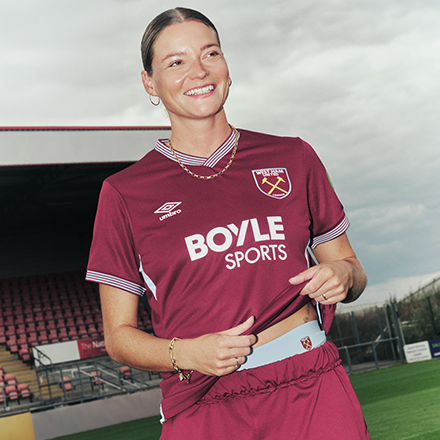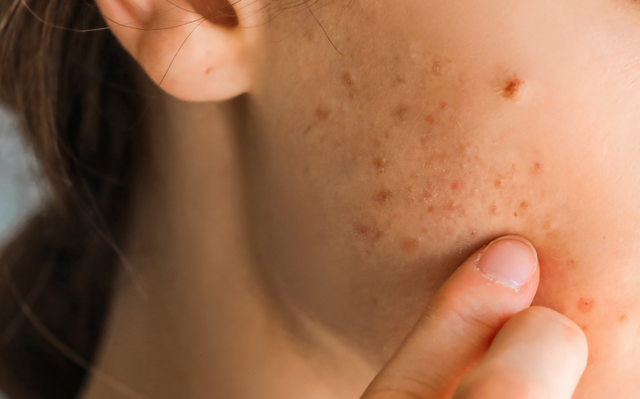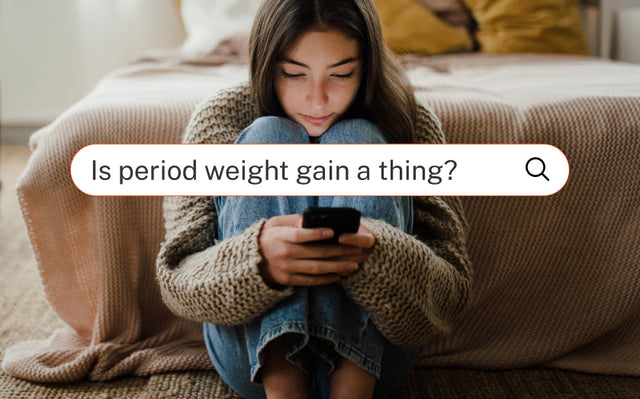Puberty: it’s like the surprise party you’ve been waiting for, without any set start time or place. When this milestone finally arrives, it can feel both exciting and overwhelming, especially when menarche (aka, your first period) begins.
If you’ve noticed changes in your body (or find yourself watching Puberty Blues), it could be a sign that your first period is coming – maybe not tomorrow, but soon.
What to expect in the lead-up to your first period
When puberty arrives, it kickstarts a bunch of changes that help your body transition from being a kid to becoming an adult. Before your first period, your hormones shift into high gear, setting off a physical transformation that can include:
- Growing breasts – You may notice the development of breast buds, a sign that your adult body is beginning to take shape.
- Hair everywhere – It’s likely you’ll grow hair in new places, including your underarms and public areas.
- Widening hips – Your hips may gradually widen (this is one of the ways your body prepares for possible pregnancy down the track).
- Acne – Hormonal changes can lead to the appearance of acne or oily skin, which is super common during puberty.
- A growth spurt – You may experience a growth spurt, making you taller, stronger and sometimes a different shape.
At some point during puberty, you’ll start menstruating, and your first period will turn up to the party. So how do you know when that’s about to happen?
Dr Raewyn Teirney is an expert in adolescent health. She explains that before your first period, puberty causes a whole lot of other changes.
“What happens first is that our adrenal glands and the brain start producing male hormones, and those hormones lead to increased hair under our arms and around our pubic area. The brain is also stimulated to produce hormones that tell the ovaries to produce estrogen. And estrogen then causes us to develop little breast buds,” she says.
So if you’ve noticed symptoms like tender breasts, an increase in pimples or acne, or even back pain and oily hair, it’s likely that your period is on its way.
Wondering how to make your first period come faster?
We’re sorry to say that there’s no way to speed up the arrival of your first period – so don’t write your #PeriodParty invites too soon. Your first cycle will typically start when you’re between 10 and 15 years old, and it’s driven by genetic factors that are out of your control.
Dr Raewyn notes that “genetics plays a significant role. Often, you will follow a similar pattern to your mother as she went through menarche. However, lifestyle factors can also influence the timing.”
So when you finally spot blood stains on your undies or in the shower, you can kind of say you got it from your mama.
How to know if your first period is coming soon
While you can’t predict when your first period will arrive, there are some signs and symptoms that indicate it’s approaching. You’ve probably heard of PMS - short for premenstrual syndrome, which is the scientific name for the symptoms you can experience in the luteal phase of your ovarian cycle.
PMS symptoms can show up as changes in your mood, emotions and body before menstruation and can vary in intensity from person to person. Here are 7 common symptoms to look out for that might be signs your first period is coming:
- Cramping – You may feel mild to moderate abdominal cramps or discomfort.
- Mood swings – If you’re feeling extra fiery, crying over puppy videos or rage-cleaning your wardrobe, your period could be to blame.
- Bloating – You might become bloated, which can make your abdomen feel swollen. This is caused by water retention.
- Tender or sore breasts – This one ain’t much fun, but the feeling is usually temporary.
- Acne or oily skin – Battling breakouts? Oily skin and hormones can lead to extra spots and dots during your cycle. Oily hair is common, too.
- Fatigue – Feeling more tired than usual can also be a sign your period is on its way. Extra downtime and rest can help.
- Backaches – These unwelcome aches are triggered by hormones and the contraction of your uterus. Pass the wheat pack, please.
Real talk – some of these symptoms suck. It helps to keep in mind that period symptoms come and go, and they’re the result of your body doing amazing things.
Tips for getting prepared
When you’ve spotted the signs you might get your period soon, it’s a good idea to get prepared. Your first period could come any time of the day or night, and cycles can be irregular until your body adjusts to its new normal.
Investing in reusable period products – like our teen range of period underwear – can give you peace of mind and provide you with comfort and leak-proof protection 24/7. Available in a range of absorbencies, from Moderate-Heavy (roughly 3 tampons) to Maxi (roughly 10 tampons), you can find the perfect pair that works with your flow. How easy is that?


Period power, activate
Remember, your first period is a big milestone, and some pretty amazing changes are happening in your body. Knowledge is power, so learn all that you can, get prepared and don’t forget to share your experiences and questions with trusted adults or healthcare professionals who can guide you through it.
Want to learn more about your periods and your body? Check out our blog.





